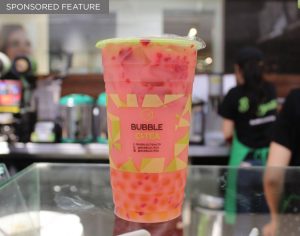From the inside, the United Kingdom in many ways looks like it’s having an identity crisis. Scotland is once again gearing up for a referendum to decide if it should go it alone, London often seems like a foreign city state to the rest of the country and Britain as a whole is wrestling with the question of what its place in Europe and the rest of the world should be after Brexit. But overseas, brand Britain appears to be going strong and there’s a lot of love for our exports, whether it’s music or high-quality manufactured goods. This is the nation of Edinburgh university. Of Kate and Wills. Of the Harrods Green Man. Of Adele’s dulcet tones. And for franchises that have their sights set on entering a new market, tapping into the soft power Britain still wields could help smooth the landing.
In fact, according to a study for the Centre of Economics and Business Research, just having a claim to being “made in Britain” could help UK exporters earn a premium of up to £2.1bn. There’s certainly something about having British roots that people overseas seem to trust. “Being a UK brand and having the consulate on our side opened doors, got us past the gatekeepers and accelerated the process when we were first going into places like Canada and Australia,” says David Paulson, senior manager for international franchise development at TaxAssist Accountants, the accountancy franchise. “The British brand has proven to be extremely powerful wherever we’ve gone and it’s meant people trusted us to be professionals from the start.”
And one of the areas the nation is most respected for is its education standards, as Water Babies, the kids swimming lesson franchise, found out when it cracked China. Its franchisees in China make a point of playing up their brand’s UK roots, holding classes in English and decorating their centres with images of red buses. In a country where British educational institutions are still highly regarded, the fact that Water Babies is able to offer franchisees the chance to obtain a British diploma during their induction has also played in its favour. “Education is everything in China so our diploma has been lapped up, as has the research we produced by partnering up with universities,” says Paul Thompson, the company’s co-founder. “Being a British brand has been a huge advantage -“I’ve actually been taken aback by just how big a role it’s played.”
Even our sense of humour can play in our favour. While we might like to think that James Bond is the embodiment our national identity, it turns out that Mr Bean is one of our biggest soft-power assets. When the British Council asked 5,000 people from the US, China, India, Brazil and Germany to name one person they associate with British culture, Rowan Atkinson’s bumbling character was right up there. And franchises that are able to capture some of the quirkiness that Britain is loved for may find it helps them with their international push. “The British sense of humour is one of our best traits: we don’t take things too seriously and keep our tongues firmly in our cheeks,” says Paul Hurley, founder of Dum Dum Donutterie, the international doughnut franchise. Though it has a global feel, Hurley believes the franchise’s playful doughnut creations and tone of voice stem from its British origins.
But what’s perhaps one of the most powerful aspects of Brand Britain in 2017 is its ability to produce fresh ideas and unusual business concepts. “The UK’s got a reputation for being cutting edge and because we’re such a multicultural country new ideas are always cropping up,” says Hurley. His franchise may have begun life in Shoreditch but its take on doughnuts, which are baked rather than fried, attracted interest from people all over the world. And the reason why many of these locations are so hungry for novel ideas is down to the fact that their cultural identity is still in the process of being formed. “Young countries are open to fresh ideas, perhaps because they’re almost creating a new identity for themselves by plucking the best from around the world,” he says.
And Dum Dum Donutterie’s story is by no means unique: London’s Cereal Killer Cafe, which charges people £5 for a bowl of cereal with a side order of 1990s nostalgia, soon found itself receiving interest from would-be franchisees overseas. Although the owners are reluctant to call themselves hipsters, the spread of hipster culture across the globe”- and particularly in Asia – undoubtedly played a big part in the franchise’s international appeal. As an expanding Asian middle class is using its disposable income to assert its individuality, it’s no surprise that savvy business minds are actively looking for franchises that do things a bit differently.
Another thing that Dum Dum Donutterie and the Cereal Killer Cafe have in common is that they both have a presence in London. “The London shop-window effect is powerful,” says Nick Williams, managing consultant at Ashtons Franchise Consulting. “People from around the globe – but particularly from the Middle East – come to the capital for either business or pleasure and that’s when they may spot a new concept or idea they want to bring back. “Many people from the Middle East are actively seeking out new franchises that have worked in London or have some sort of novelty factor. They have an insatiable appetite for something different.” Whether it’s China’s respect for British standards and qualifications or the Middle East’s penchant for a quirky franchise concept, Britain’s appeal clearly lies beyond crusty stereotypes. Franchises that can get in front of foreign investors in London and show them something new could find their concept taking flight.
But once a business has successfully courted franchisees and got its foot in the door, how British should it remain? While TaxAssist Accountants is proud to fly the flag and acknowledges that being from the UK helped it enter new markets, it knows that once franchisees are on board it’s important to localise. “You can’t just copy and paste your franchise and expect it to catch on: it’s important to have the look and feel of an indigenous brand,” says Paulson. And while being the only doughnut brand to be stocked in Harrods may have helped Dum Dum Donutterie make a name for itself, Hurley doesn’t deliberately play up the brand’s Britishness and encourages his international chefs to come up with local recipes.
That being said, every market is different. While Thomson’s initial instinct when taking Water Babies into China was to be modest about the brand’s Britishness, his consultants – and enthusiasm from locals – persuaded the franchisor to shout it from the rooftops and place Britain front and centre in the franchise’s marketing collateral. “Brand Britain is in good shape overseas and there’s this idea that the Brits do things properly, so our franchisees like to advertise that connection,” he says.
Clearly, being associated with the UK can be a selling point but what makes Britain so appealing today could shift in the future. While Michael Gove thinks Brexit offers an opportunity for an “empowering moment of patriotic renewal,” there are worries about how the negotiations might affect Britain’s reputation for being an open and even capable nation. What’s more, the number of overseas undergraduate acceptances fell last year for the first time in five years according to education organisation UCAS, prompting some concerns about the future appeal of the UK’s higher education institutions overseas. But at the end of the day, a strong franchise concept will always win, regardless of its Britishness. “You can over-egg the impact of brand Britain,” says Williams. “It’s a bonus but at the end of the day whether your franchise comes from Timbuktu or Britain, it has to be reputable and the relationship with the franchisor is what will always matter most,” he concludes.

Maria Barr
Maria was our web editor, who wrote profiles, new stories and features relating to the franchising world.

Maria Barr
Maria was our web editor, who wrote profiles, new stories and features relating to the franchising world.
































